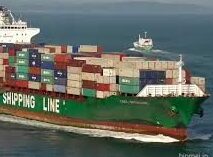Supply chain issues continue to raise concerns, and it’s now a possible strike along East Coast and Gulf Coast ports that could cause disruptions in the weeks and months ahead.
The contract between the International Longshoremen’s Association (ILA) and the United States Maritime Alliance (USMX) is set to expire on Sept. 30. Negotiations between the two parties have stalled, raising concerns about a possible strike starting Oct. 1.
The main points of contention are wage increases and limits on port automation. Negotiations broke down in July after the ILA learned that APM Terminals and Maersk were using automated technology to process trucks without union labor.
A strike would affect East Coast and Gulf Coast ports, which handle 43% of U.S. imports. It could disrupt $3.7 billion worth of trade per day. The strike would impact retailers, manufacturers, and farmers by delaying shipments and potentially shutting down production lines.
Many companies have been redirecting shipments to West Coast ports. Some businesses have brought in products earlier to frontload the peak shipping season. Air freight is being considered as an alternative for time-sensitive or high-value goods.
As of mid-September, the two sides appear far apart in negotiations. The ILA has voted unanimously to support a strike if their demands are not met. There are calls for both parties to return to the negotiating table to avoid disruption.
The parties could resume negotiations and potentially extend the current contract. President Biden could use his influence to encourage negotiations or appoint a federal mediator. As a last resort, the President could invoke the Taft-Hartley Act to implement an 80-day cooling-off period.
###
AgWeb


